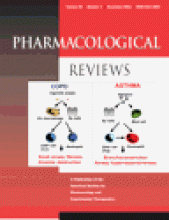Abstract
Angiogenesis is a hallmark of wound healing, the menstrual cycle, cancer, and various ischemic and inflammatory diseases. A rich variety of pro- and antiangiogenic molecules have already been discovered. Vascular endothelial growth factor (VEGF) is an interesting inducer of angiogenesis and lymphangiogenesis, because it is a highly specific mitogen for endothelial cells. Signal transduction involves binding to tyrosine kinase receptors and results in endothelial cell proliferation, migration, and new vessel formation. In this article, the role of VEGF in physiological and pathological processes is reviewed. We also discuss how modulation of VEGF expression creates new therapeutic possibilities and describe recent developments in this field.
- The American Society for Pharmacology and Experimental Therapeutics
PharmRev articles become freely available 12 months after publication, and remain freely available for 5 years.Non-open access articles that fall outside this five year window are available only to institutional subscribers and current ASPET members, or through the article purchase feature at the bottom of the page.
|






